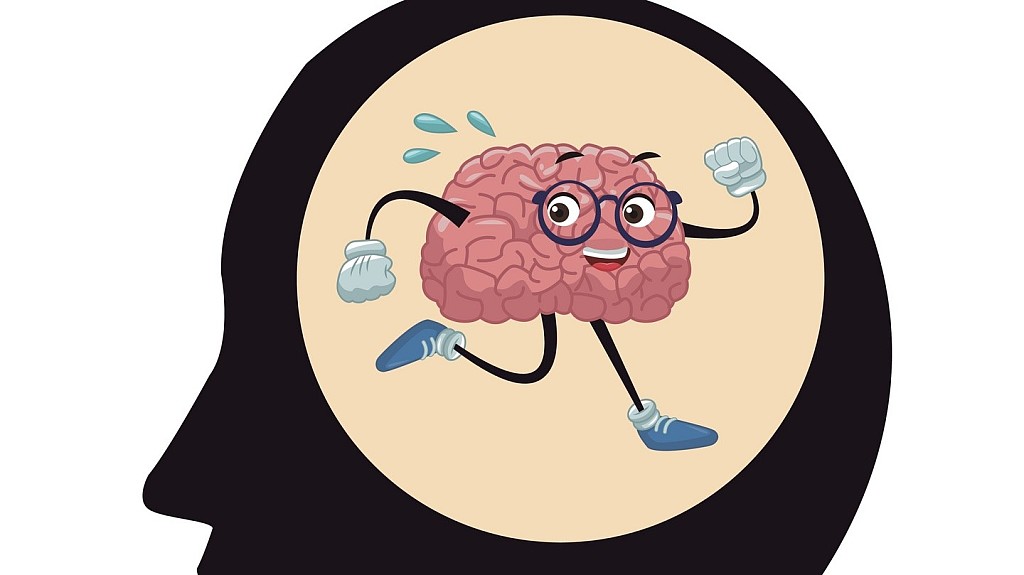Running News Daily
Running News Daily is edited by Bob Anderson. Send your news items to bob@mybestruns.com Advertising opportunities available. Train the Kenyan Way at KATA Kenya and Portugal owned and operated by Bob Anderson. Be sure to catch our movie A Long Run the movie KATA Running Camps and KATA Potato Farms - 31 now open in Kenya! https://kata.ke/
Index to Daily Posts · Sign Up For Updates · Run The World Feed
Running improves your brain function
Having a brain block at work? Going out for a mid-day run may have more effects on your brain than just a psychological break in the day.
While the immediate benefit of running, the release of dopamine and other endorphins, is oh-so-good for a stressed-out brain, recent studies have shown running causes more profound, long-lasting changes to brain function. Curious researchers are working hard to uncover how and why aerobic exercise stimulates the brain.
Running to Remember
Two studies this year, published only a week apart, showed that aerobic exercise improved memory.

One of the studies, from the American Academy of Neurology, looked at 206 adults before and after a six-month exercise program. By the end of the program, the participants saw blood flow to the brain increase by 2.3 percent on average, which is what the researchers believe led to a 5.7 percent improvement on executive function tests and 2.4 percent improvement on verbal fluency.
“Our study showed that six months’ worth of vigorous exercise may pump blood to regions of the brain that specifically improve your verbal skills as well as memory and mental sharpness,” said study author Marc Poulin in a press release.

Other study, published in the Journal of Alzheimer’s Disease, also looked at blood flow to the brain, but over a year’s worth of aerobic exercise. The exercise group saw a remarkable 47 percent improvement in their memory scores. However, these were among individuals who had memory issues to begin with, which could account for the more staggering results.
Osteocalcin, a hormone, is another reason memory can be improved by running, among many other incredible functions it helps with.
Brain Health and Brain Function is Boosted
One study that came out of the Beckman Institute for Advanced Science and Technology found an association between cardiorespiratory fitness and the brain’s ability to produce N-acetyl aspartic acid (NAA). According to Tartar, NAA is a marker of exactly how active the brain is.
“A central question raised by this work is whether we can modify NAA through physical activity and fitness interventions, providing an effective method to enhance cognitive performance and brain health across the lifespan,” said researcher Ryan Larsen in a press release.
At the Kavli Institute for the Brain and Mind in California, they’re looking at how running improves motor skills, starting with mice. One of their studies, published in Nature Communications, examined how mice running on a wheel over the course of a week performed better on several tests for motor skills, including walking quickly along a balance beam or staying on a rotating rod. The researchers believe that the type of plasticity they saw in mice brains can easily be translated to humans. By incorporating running, athletes may see performance enhancement in other areas that require fine motor skills.
There are many other ways that scientists know that exercise can improve brain function. But they still don’t know why. “We can look at the after effect and see if somebody exercises for a few months, we can start to see changes in their cognitive functioning,” says Dr. Tartar. “They have better attention, better executive function, but we really want to see how.”
There are several chemical reactions that are set off by running and exercise that prove that brain health is better off, but the ‘why’ is still yet to be determined. Dr. Tartar would like to find the mechanisms behind things like brain-derived neurotrophic factor (BDNF) and Irisin.
She calls BDNF, a protein released during muscle activity, food for the brain. It supports neuron survival and health, while promoting overall neural health and cognition. Irisin is a hormone secreted from muscles during exercise that also promotes neural health and cognition. But exactly how these proteins and hormones work needs further study to be truly understood.
Remember that hormone, osteocalcin? It also plays a role in emotion, by increasing serotonin and dopamine, and it’s been shown to decrease anxiety and depression.
Anecdotally, psychologists have known for years that exercise boosts mood by having study participants self-report their feelings. But with the combined efforts of exercise scientists and neuroscientists, there is data from the brain that corroborates that.
by Malissa Rodenburg
Login to leave a comment




